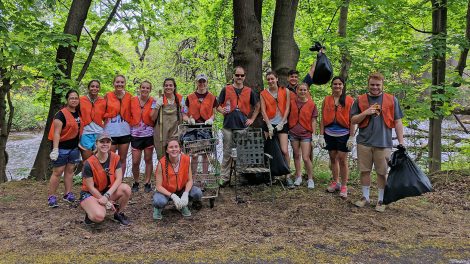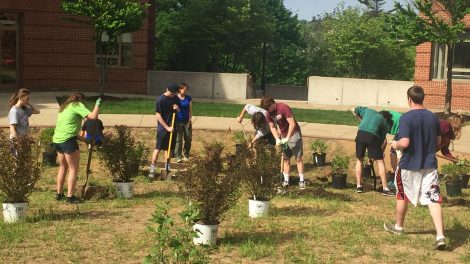Environmental Science and Studies Programs
We are an interdisciplinary community of environmental stewards committed to cultivating knowledge, skills, and activism for a sustainable and just future.
OUR MISSION:
- Attract and retain a talented and diverse group of students.
- Nurture a community centered around the values of hope and restorative action.
- Offer resources, support, and rigorous, interdisciplinary curricula in EVST and EVSC to cultivate ethical, environmental leadership skills.
- Foster place-based belonging through shared experiences, reflection, environmental stewardship, equitable partnerships, and place-based action.
- Provide opportunities for environmental research, policy application, and professional development.
From news.lafayette.edu
All Recent News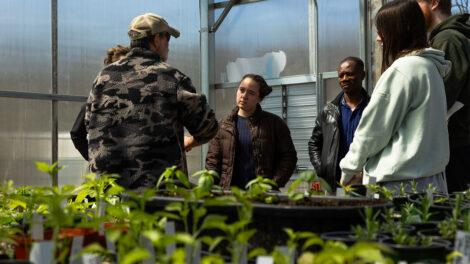
Jul 22, 2025
Inside the classroom: Sustainability in the Urban Environment grows active learning in an interconnected world
EVST 375 centers around urban sustainability, investigating how urban centers engage with the natural world around them, and vice versa.
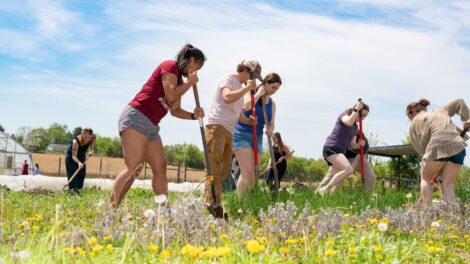
Jun 30, 2025
Inside the classroom: Land Acts course combines practical and spiritual sides of land use
Shuttling between LaFarm and their classroom at Rockwell, Prof. Keeler and his 14 students explored the relationship between land and climate change.
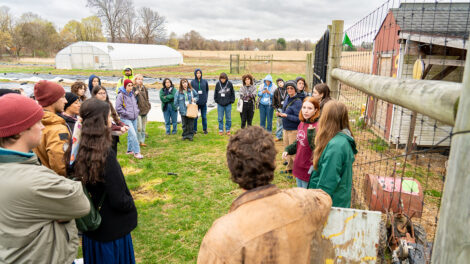
Apr 11, 2025
Lafayette hosts Northeast Student Food and Farm Conference
Organized by the Lafayette Food and Farm Co-Operative (LaFFCo) student club, Lafayette College hosted the annual Northeast Student Food and Farm Conference…
Environmental Capstone (EVST 400)
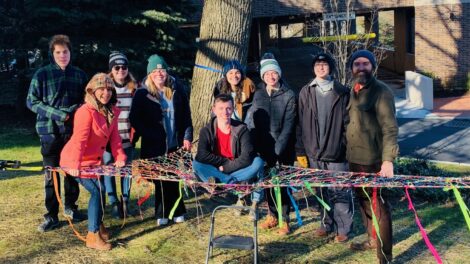
EVST 400 students propose a sustainability attribute for the Common Course of Study (CCS)
The Environmental Science & Studies majors culminate in a capstone experience (EVST 400) that encourages students to integrate and apply their skills and knowledge to advance campus sustainability initiatives. This course is always co-taught by a STEM faculty member paired with a faculty member from the social sciences or humanities. After reading "The Sunflower Forest: Ecological Restoration and the New Communion with Nature" by William Jordan, EVST 400 students in fall 2022 proposed student learning outcomes for a Sustainability attribute for the Common Course of Study (CCS). The CCS includes the outcomes-based general education requirements for all Lafayette students. To advertise and promote environment & sustainability in the academic core, EVST 400 students also created an art installation - an interactive web suspended by campus trees to encourage mindfulness and reflection on the interconnectivity and unity of all life on Earth.
LaFarm
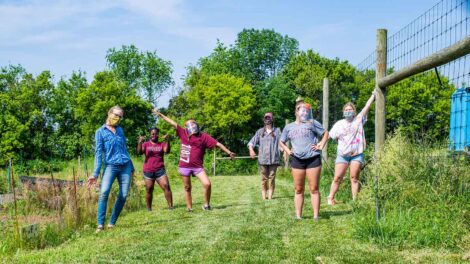
The Community Garden & Working Farm
The Community Garden & Working Farm is a site for teaching, research, outreach, growing healthy food, and building community. Our daily work and our long-term goals aim to build an understanding of the critical role of food and farming in environmental stewardship.
In Practice
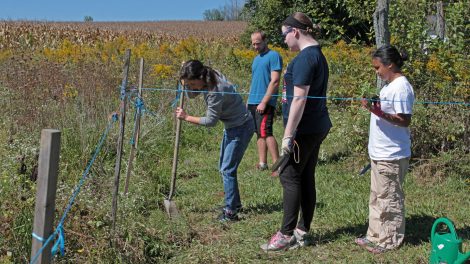
Ecological Sustainability
Sept 2016. As part of our ongoing efforts to address ecological sustainability, EVST students recently planted native perennials (Little Bluestem, Obedient Plant, Grey-Headed Coneflower, and Indian Grass) along the buffer area and drainage swale at LaFarm. The project was funded by a grant from the Lehigh Gap Nature Center's Landscaping for Communities and Wildlife program. Past ecology projects at LaFarm have included installation of a bee hive, bluebird boxes (a local Eagle scout project), plantings that attract pollinators, and protecting milkweed from mowing.
Contact Information
Megan Rothenberger
220 Rockwell Integrated Science Center
rothenbm@lafayette.edu

